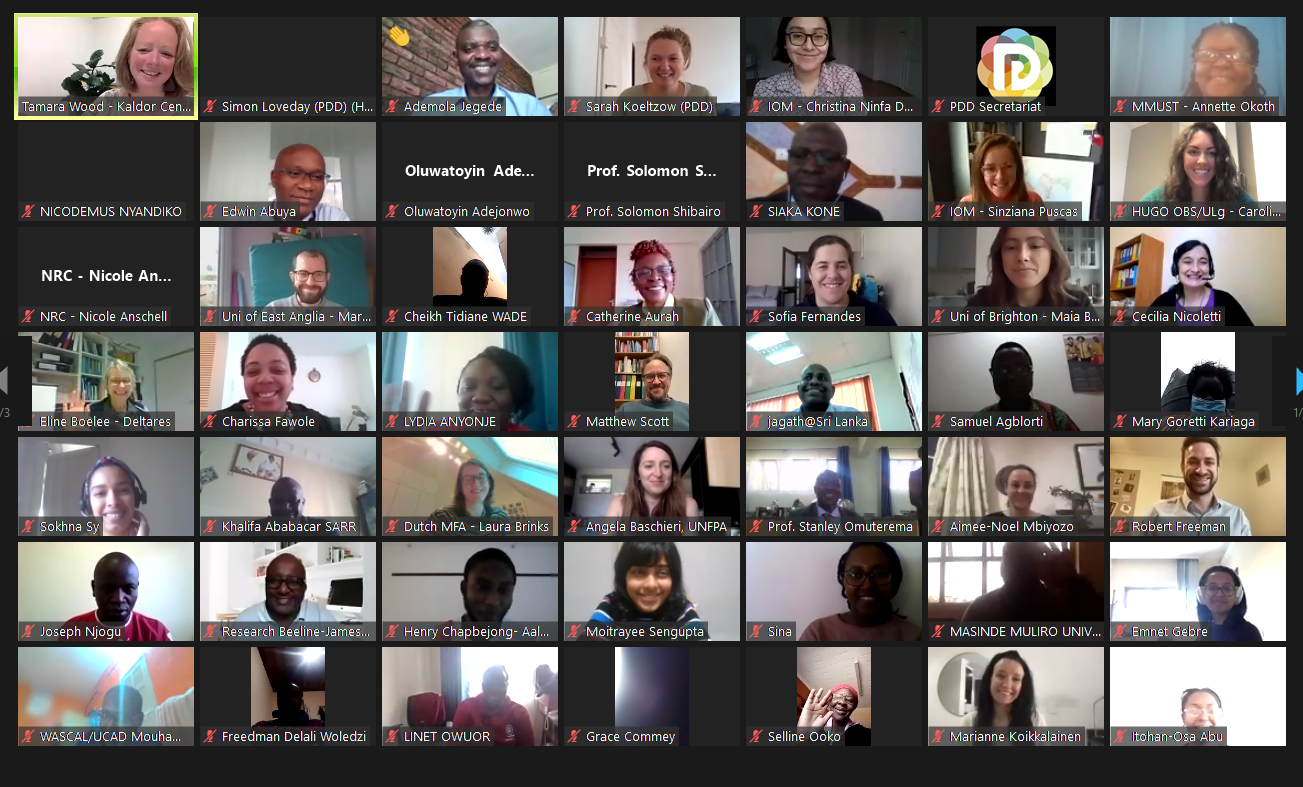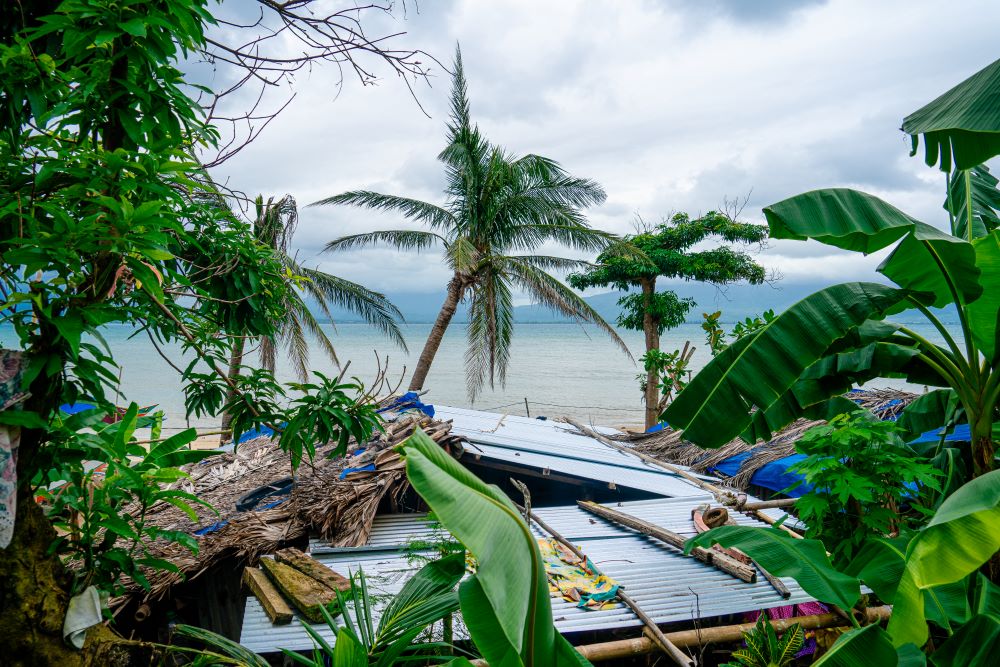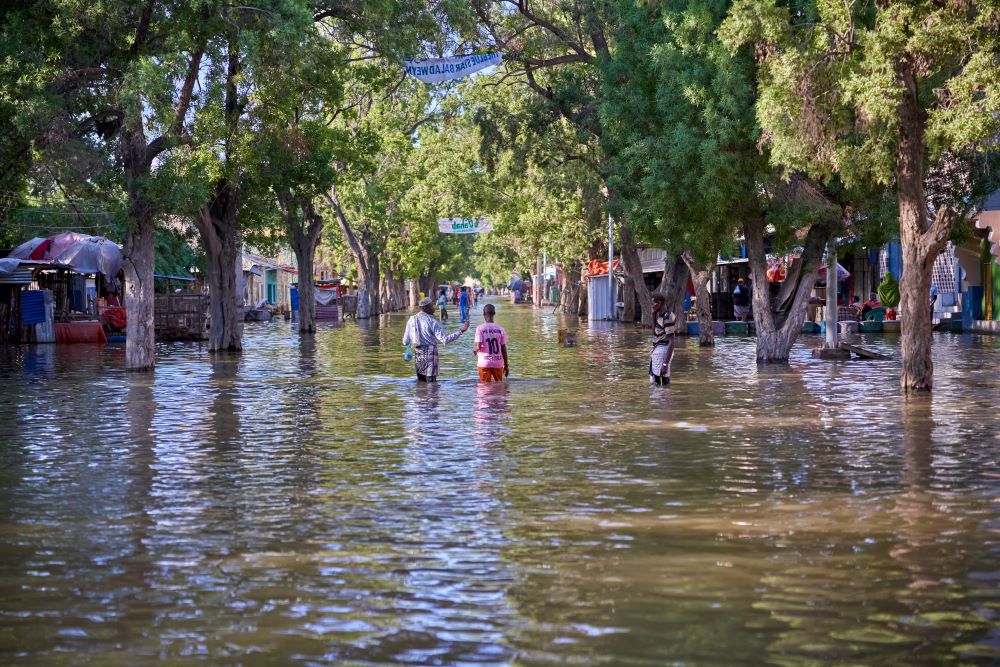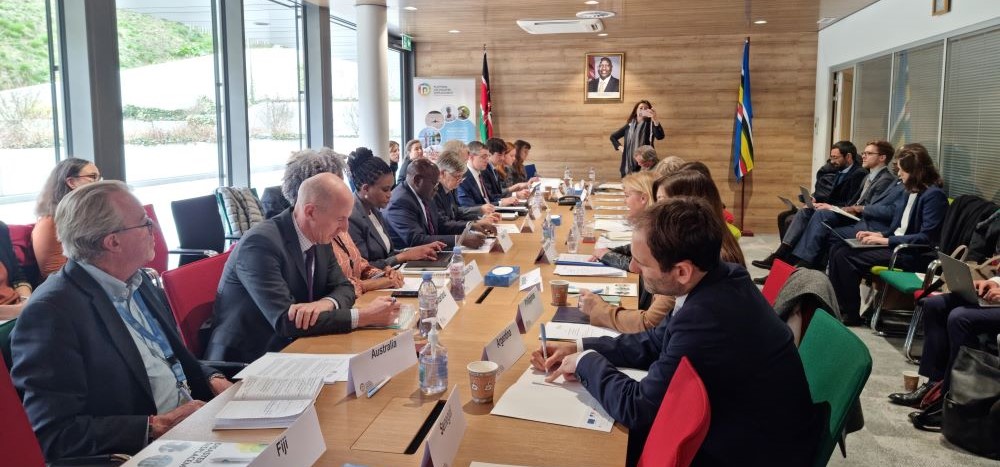In March 2024, the United Nations Special Rapporteur on the human rights of internally displaced…

Launch Event | Research Agenda for Africa and Climate Mobility Africa Research Network
By Dr Tamara Wood, Kaldor Centre for International Refugee Law at UNSW
30 November 2021 — an online event gathered researchers and practitioners from across Africa and beyond to mark the launch of the Research Agenda for Advancing Law and Policy Responses to Displacement and Migration in the Context of Disasters and Climate Change in Africa and the newly-established Climate Mobility Africa Research Network (CMARN).
Displacement and migration in the context of disasters and climate change are a reality across the world. In 2020, there were more than 30 million new displacements globally as a result of disasters. Many more people moved to avoid future impacts of disasters, climate change and environmental degradation. With 4.8 million new displacements in 2020, Africa is not spared; the intersection of disasters and climate change with other drivers of movement on the continent is likely to grow in the coming years.
The Research Agenda for Advancing Law and Policy Responses to Displacement and Migration in the Context of Disasters and Climate Change in Africa
It is often unclear how and to what extent laws and policies that address climate-related human mobility are applied, including within Africa. The new Research Agenda (also available in French) marks a significant step in trying to address this knowledge gap, by supporting governments and others to ensure effective law and policy responses to the issue in Africa.
At the recent launch of the Research Agenda, Dr Tamara Wood, of the Kaldor Centre for International Refugee Law at UNSW, explained that ‘the phenomenon of climate change-related human mobility is very diverse, and requires diverse responses. There’s no single international or regional framework for addressing the predicament and the needs of those who move in this context.’
Despite a wide range of existing law and policy tools for ensuring the safety and protection of those who move, knowledge gaps relating to their scope and application at the intersections of climate change, disasters and human mobility frequently impede their effectiveness in practice.
The Research Agenda is the combined work of more than 200 researchers, policymakers, judicial officers and government officials from across Africa and beyond. Across several months of virtual workshops and discussions, they developed 15 concrete proposals for future research to advance evidence-based law and policy responses to these issues.
The proposals in the Research Agenda are relevant for a wide range of regional laws and policies in Africa, including those relating to climate change, disaster risk reduction, migration and free movement of persons, transhumance, refugee protection, human rights, protection of internally displaced persons and planned relocation.
The research proposals could help to address knowledge gaps by clarifying the scope of states’ legal obligations and commitments, supporting the effective implementation of laws and policies, and developing better understandings of core concepts and questions that arise.
For example, in the field of refugee law, Mr Patrick Eba, Deputy Director of the Division of International Protection at the United Nations High Commissioner for Refugees (UNHCR) explained that the Research Agenda ‘outlines critical questions that will help us better understand and ensure that the 1969 [African Refugee] Convention is better applied to the challenges of today.’
These questions include: when will the impact of disasters will amount to ‘events seriously disturbing public order’, one of the legal bases for refugee protection in Africa? Or in regions where regional free movement of persons agreements are in place, what are the relative benefits of refugee protection and free movement arrangements for those forced to move?
Elsewhere, the Research Agenda calls for a better understanding of the integration of human mobility into climate change and disaster risk reduction laws and policies, at the national as well as regional levels.
‘Integrated regional policies are key’ reminded Mr Manuel Marques Pereira, Head of the Migration, Environment and Climate Change Division, International Organization of Migration (IOM). Therefore a coherent approach across different fields of law and policy fields is essential. As Mr Kai Gatkuoth, Technical Coordinator for Disaster Risk Reduction for the African Union, explained, ‘disasters, displacement, migration and vulnerability are interlinked’. People are displaced by disasters, but displacement in turn can increase their vulnerability to future hazards.
Panelists at the launch of the Research Agenda endorsed its research proposals, pledged their support to the implementation of the Agenda as well as the need to ensure that research and knowledge are translated into action on the ground.
Mr George Okoth-Obbo, Head of the Secretariat for the UN Secretary-General’s High Level Panel on Internal Displacement, emphasized the critical role of ‘national political will and ownership’ in translating research and knowledge into practice. He challenged future research to focus on practical issues by asking ‘How does it actually happen? How does the whole of government work?’, and called on researchers to look for ways to link the research proposals to government behaviour in order to generate change.
The Climate Mobility Africa Research Network
The launch of the new Climate Mobility Africa Research Network (CMARN) followed the launch of the Research Agenda. This bilingual, interdisciplinary network will provide a platform for critical and independent research on the topic of climate mobility, and for future collaboration between researchers and policymakers on this and related issues.
The Co-Chair of CMARN, Dr Nicodemus Nyandiko of the Masinde Muliro University of Science and Technology in Kenya, explained the objectives of the network by stating that ‘as a network, we will come up with enabling policies and frameworks to advance enduring solutions to the problems of displacement and migration occasioned by disasters and climate change’.
The Research Agenda and CMARN were developed with the generous support of the International Organization for Migration (IOM); the United Nations High Commissioner for Refugees (UNHCR); the Deutsche Gesellschaft für Internationale Zusammenarbeit (GIZ); the Platform on Disaster Displacement (PDD); and the Africa-Australia Universities Network (AAUN). The Research Agenda is available in English and French. More information about CMARN can be found it its website.
Useful Links
Access the full version of the Research Agenda
L’Agenda de recherche est aussi disponible en Français
Learn more about the Kaldor Centre for International Refugee Law
Learn more about the Virtual Workshop Series
Download the concept note (EN):
 Loading...
Loading...
Download the concept note (FR):




Learn more about PDD’s work in our Workplan 2019-2022:








